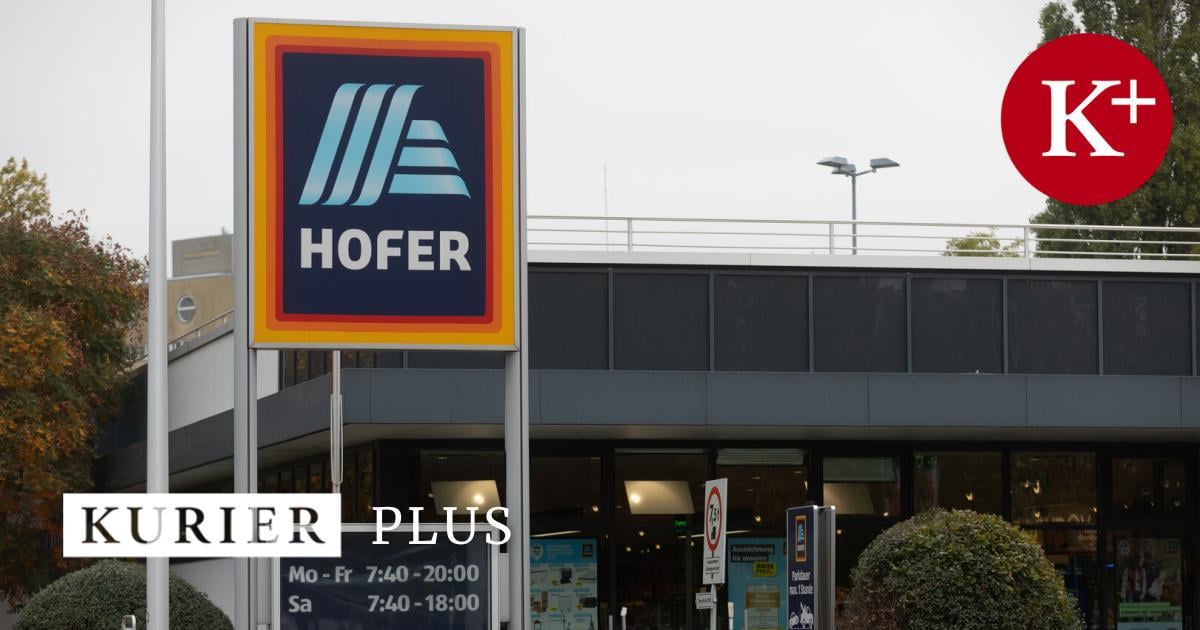What changes in 32 years and what remains?
Back then we were purely a discount store. In cheap B and C locations, with small shops and a tiny range, mainly with non-perishable products. But perfected in every process and incredibly efficient. We were niche, but already had a ten percent market share. Today we are still a discount store, but in A locations. We have a range that covers 90 percent of your needs. With every decision we consider whether this suits us and take the cost basis into account in all decisions. We question everything. Every item is not in the store by chance, we know exactly which product attracts which customers.
Hofer made discounting socially acceptable. The fine ladies also shop there. How did that succeed?
This is a very special situation in Austria. The women in society have often told me that their favorite Prosecco is from us and that they buy special batches (weekly promotions) from us every week. It has a lot to do with our values: we have never tried to be cheap at the expense of quality or at the expense of others. Our prices have to do with a certain business model that allows this. We have also developed an obsession with quality and a commitment to service and have always tried to do something positive for the location in Austria. This has given rise to confidence in the quality and the price. And that is the reason why we have the highest market share of all countries here at 20 percent.
Is a discounter still a discounter when it has reached the center of society?
Yes. Discount is not a niche concept, but is on the way to a 40 percent market share in the long term. People need uncomplicated shopping experiences, the quickest way to get through them is at discount stores – basically always the same store layout, a quality close to or above that of branded items, at a price that you can rely on. Price levels are out of balance in many people’s eyes.
Hofer also scores points with the non-food segment. Trendy super bargains, from tools to pajamas to rubber boots. Are these still the best lures?
A large part of our success lies in purchasing. We develop the products together with our suppliers, 90 percent of this range is our own brand and we have everything under control. The quality, the origin, the size, the purchase price, the selling price, the sustainability. But non-food became difficult because Amazon is costing us sales here and other discounters are also increasingly on the market (such as Action, Kik, TEDi, note.). This business once accounted for 25 percent of our sales and was a very important frequency driver for Hofer on Mondays and Thursdays. Today there are only ten left. Our big question right now is how do we manage to achieve the frequency on these two days.
Are you hoping to improve again or have you lost the field?
We hope to be able to increase it again. The market doesn’t always do what you would like.
In Austria there is a market concentration in supermarkets. Is the situation really that special?
The fact that four chains (Rewe, Spar, Hofer, Lidl, note) make 90 percent of sales is one of the highest concentrations in Europe. This is problematic to a certain extent – but not for the customer. The chains do everything they can to compete against each other, as the Federal Competition Authority has also confirmed. But what she also confirmed is that it can be problematic with producers. Because suppliers have to promise prices that they otherwise wouldn’t promise. It requires special responsibility, which we ourselves live and express. We say in our leaflets that a campaign is borne by us, not by the supplier.
And then is it at the purchase price or below?
Then we earn little or nothing anymore.
Why are the price levels in German supermarkets noticeably lower than in Austria?
Germany is a market ten times larger than Austria with huge urban centers. Running a grocery store there is much more efficient than in a country of 9 million with many valleys, a lot of its own production and many own brands. Operating the network is significantly more expensive. We also now have more expensive staff than in Germany. Shelf prices are lower in Germany, but Austria has become a promotional country.
They say that working at Hofer is demanding but rewarding.
It has always been the case that we pay the best salaries at all levels. That’s Aldi’s philosophy.
They lasted 32 years.
Yes. I always liked the founder’s values. The performance of our people and the loyalty are fantastic.
32 years of Hofer: at what point do you know everything or do you never know everything?
You never know everything. The past six years in the CEO role have brought a huge technology transformation.
Your plan from January 1st?
Not having one.
Why are you leaving at 59 years old?
This is a decision based on my life planning, I have implemented things, others should now follow suit. They are available and that’s a good fit. It’s a good moment.
